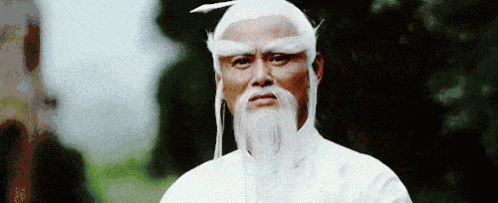How to Handle Bigotry and Hypocrisy
Google defines these terms like this:
Bigotry: intolerance toward those who hold different opinions from oneself.
Hypocrisy: the practice of claiming to have moral standards or beliefs to which one's own behavior does not conform; pretense.
Let me guess. You hate bigotry as much as you hate hypocrisy. Right?
I do too. But you know what that means?
We both have hypocritical and intolerant tendencies within ourselves.
By definition, if you are being intolerant of intolerance, you are being hypocritical.
The things we hate in others are things we hate in ourselves too. We seem to think that hating it will make it go away. This doesn't actually work, though. It only blinds us to the behavior in ourselves while making us more aware of the behavior in others.
So, if hating it doesn't work, what happens if we stop hating it?
If we stop hating bigotry and hypocrisy, we won't act out of hate when we see it in others. We'll fall out of the habit of noticing it in others. We'll be less inclined to judge others or get upset by the flaws we notice. We'll be more aware of these flaws in ourselves.
You can be aware of and choose to avoid something without hating it or even getting annoyed by it.
Focus on what you want to become, not on what you want to avoid becoming. Focusing on avoiding obstacles is ineffective. It slows us down because obstacles are moving against us. It prevents us from building momentum. Focusing on the path ahead is all we need to avoid the obstacles we tend to worry about. It allows us to keep moving forward.
Why is this so?
What you spend time thinking about is what you're familiar with. When you act, you usually act in ways that are familiar to you. If you're always on the lookout for bigotry, you are going to act like a bigot.
It's difficult to practice not doing a thing. It's easier to practice doing something else in its place. Practice thinking about the best in those who motivate you to be the best version of yourself. Then the undesirable behavior will not exist in the set of behaviors you've chosen to equip.
Okay, but how do we stop hating despicable things like bigotry and hypocrisy?
Stop using the word. Stop saying it, stop writing it, and stop thinking it. Any word or phrase that makes you mad when you think about it is no longer useful. You've tied so much emotional baggage to the word that it doesn't mean the same thing to you as it does to others.
We use these words on people, and the emotional baggage follows. We already know how we feel about them, so we feel justified in treating them with disrespect.
Instead, see these undesirable behaviors for what they are; lack of self-awareness. We all have blind spots in our perceptions of ourselves. When someone shows you a blindspot, use this information to adjust your thinking. Focus on growth instead of inadequacy.
Sometimes, people respond in unproductive ways when their flaws are exposed. It is not your responsibility to change their behavior. Instead, take responsibility for your words and actions. If your words had an undesired negative effect, take responsibility for that too.
But I want to make the world a better place! They need to know they're wrong!
Most important, don't try to help others by showing them their flaws or blind spots unless they ask you to. Otherwise, you're participating in the very behavior you despise.
They'll feel like you're either attacking or fixing them, and even if they don't, it's rude.
Because you welcome criticism doesn't mean I am ready to, and there's nothing you can say or do that will change that. Welcoming criticism must come from a person's desire for growth.
Sound advise for the wise.
